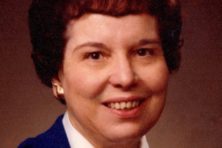Leadership in Turbulent Times by Doris Kearns Goodwin
- Share
- Tweet
- Pin
- Share
Book Review by Carolyn Kane
During the 1970s and ’80s, America was blessed by a flourishing band of writers and commentators who strove to explain legitimate science to the general public. Carl Sagan was perhaps the best known, but there were others, including Isaac Asimov, Lewis Thomas and Stephen Jay Gould.
Today we’re seeing the rise of a different kind of public intellectual: the historian who writes exhaustively researched books that are readily accessible to the general public and that succeed even beyond the written word. We can rejoice in the works of David McCullough, winner of the Presidential Medal of Freedom; Ron Chernow, whose biography of Alexander Hamilton inspired the musical Hamilton; and Doris Kearns Goodwin, whose book Team of Rivals served as the basis for the Oscar-nominated movie Lincoln.
More recently, Goodwin has performed a public service with her 2018 book Leadership in Turbulent Times, winner of the Pulitzer Prize. She sets out to demystify the term “leadership” and to define it through the lives of four presidents – Abraham Lincoln, Theodore Roosevelt, Franklin Roosevelt and Lyndon Johnson – who, she contends, are extraordinary examples of leadership.
Each had a burning ambition, mixed with an equally intense desire to help people. Each met with a devastating obstacle early in life, and each suffered a period of despair but recovered, won the presidency and led the nation through a major crisis.
Lincoln grew up in extreme poverty, but by the time he was 25, he had already won a seat in the state legislature. A recession dashed his hopes for a political career and made him so poor that he had to break his engagement to Mary Todd. He took to his bed, so depressed that his friends had to remove all knives and other sharp objects from his room. His doctors concluded that Lincoln was “within an inch of being a perfect lunatic for life.”
But Lincoln got out of bed, studied law, kept his promise to Mary Todd and found a new reason for living. According to Goodwin, “In the antislavery struggle, he had found the great purpose that would thrust him back into public life, and that purpose, larger by far than his large personal ambition, would hold him fast until he died.” The signature achievement of his administration was the adoption of the Emancipation Proclamation.
Unlike Lincoln, Theodore Roosevelt grew up in a wealthy household. Although he was a sickly young man, he was able to launch a promising political career by the time he was 26. Then fate intervened: His wife and mother both died on the same day.
“The light has gone out of my life,” he wrote, and “for joy or sorrow my life has now been lived out.”
In his grief, Roosevelt fled to the western frontier, where he purchased a cattle ranch. During the next two years, he enjoyed the nearness of untamed nature and the company of men who lived nearby. His health improved, and so did his outlook.
When he assumed the presidency after the assassination of McKinley, he was physically and mentally prepared for his first crisis: a coal miners’ strike that threatened to cut off the fuel supply in the Northeast during the coming winter. Theodore Roosevelt succeeded in bringing labor and management together by creating the first binding arbitration in history.
Franklin Roosevelt’s struggle with polio has been well documented in books, on film and on the stage. But he was a Roosevelt, and he had been trained from childhood to appear “bright and happy,” even during a time of impending tragedy.
He suffered from depression occasionally during his long convalescence, but for the most part, he presented an appearance of good cheer to his visitors, and in time, he managed to convince even himself that his cheer was real.
Roosevelt also convinced and inspired the public. During his inauguration, the wife of an Alabama senator saw him maneuvering his crippled legs toward the rostrum and reported, “Never have I seen an expression as he wore on his face – it was faith, it was courage, it was complete exultation!”
Roosevelt’s faith and courage were real. Since that time, other presidents have tried and failed to replicate his flurry of accomplishments during his first hundred days in office.
Lyndon Johnson is often remembered as the glum egomaniac who drew the nation into the quagmire of the Vietnam war, but Johnson had a genuine desire to be of service, especially to the poor. As a young man, he was the principal of a tiny Mexican-American school in Texas, and he worked so hard to provide opportunities for his students that they adored him – not necessarily a typical view of a principal.
As president, he confronted the racial strife that was the hallmark of the 1960s and helped to pass a flood of compassionate legislation. His proudest accomplishments were the Civil Rights Act and especially the Voting Rights Act, which he called “one of the most monumental laws in the entire history of American freedom.”
Every college library should have copies of Leadership in Turbulent Times for students who have begun to despair for their future happiness. Every aspiring politician should read Leadership and consider whether she or he has the necessary combination of ambition and altruism to make a successful leader. And Leadership will provide a tonic to readers who are weary of today’s political scene. Heroism is possible, even for politicians.
Carolyn Kane is a professor emerita of English at Culver-Stockton College in Canton, Missouri, who lives in Door County. She’s the author of Taking Jenny Home, which was named to Kirkus Reviews’ Best Books of 2014.


